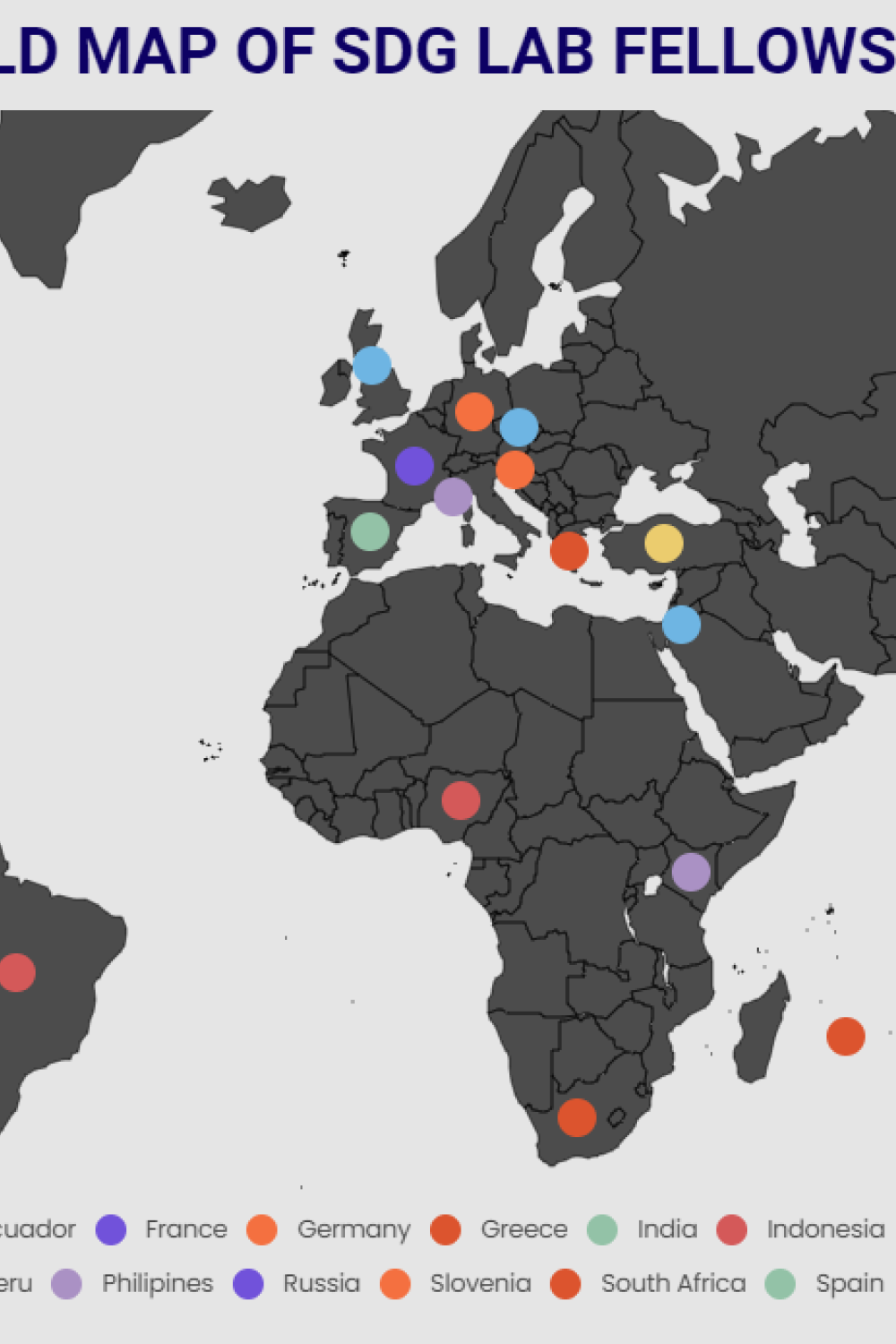Case Study. 1
Project Title: Climate Risk and Adaptation
Cohort: BMW Group Plant Programme 22-23
Fellows: Aurona Sarker and Tilmann Herchenroder
Sustainable Development Goals Targeted: Sustainable Industry (SDG 9) Innovation and Infrastructure, and Climate Action (SDG 13)
Notable Outputs and Impact: An enhanced local climate risk and governance framework and a ‘Best Practice Handbook’ for the BMW MINI Plant, Oxford.

*click on an image to open in a new tab
How did the Fellows identify and approach the research problem?
Aurona Sarker, and Tilmann Herchenroder, both students on the MSc Sustainability and Environment at the University of Oxford, identified that the effects of climate change pose major physical and financial risks to businesses. The physical risks include the risk of damage to business assets or operations due to climate-related events, however a financial risk also emerges when/if a business undergoes a transition to a lower-carbon economy.
In order to further explore this problem and its potential impact at the BMW MINI Plant, the Fellows employed a range of methodologies in their 4-week onsite Field Lab, including data analysis of Oxford Daily weather data, expert discussions with BMW staff and senior leadership team, and a broad review of internal documentation surround governance and risk management.

What findings did the Field Lab research yield?
The Fellows proposed that efforts to adapt to climate change ( rather than mitigating the effects) can foster opportunities for organisations and businesses, and that the development of a local climate governance framework would help to identify such opportunities.
What was the impact of the research outputs at the BMW MINI Plant?
The Fellows developed an enhanced local climate risk and governance framework. This is a potential departure point for the Oxford Plant to begin to identify climate opportunities and to highlight ‘best practice’, which would not only meet UK reporting requirements, but also mitigate financial risks due to climate change.
More widely, a better business approach to climate adaptation ( rather than mitigation) helps to protect people and assets through building organisational resilience. A ‘Best Practice Handbook’ for the Plant is a future asset and valuable tool for consultation and guidance on climate risk and adaptation, both now and in the future.

Case Study.2
Project Title: A Corporate Social Responsibility (CSR) Framework
Cohort: BMW Group Plant Programme 22-23
Fellows: Yi Su & Rafi Ahmed
Sustainable Development Goals Targeted: Partnerships for the Goals (SDG17)
Notable Outputs and Impact: A CSR evaluation tool is now in use at the BMW MINI Plant Oxford, and has been used to assess the impact of particular corporate and social responsibility activities of BMW and where limited resources would best serve these CSR activities. This evaluation tool is helping to evaluate how BMW’s CSR strategy can make impactful contributions to the local community.

How did the Fellows identify and approach the research problem?
Master of Public Policy (MPP) student Yi Su, and MPhil Development Studies student Rafi Ahmed identified that organisations desirous to undertake CSR activities, particularly in areas such as community outreach and sustainability, benefitted from a robust framework and evaluative tool in which activities can be assessed, ( in terms of organisational resource and cost/benefit analysis) and their impact measured.
What findings did the Field Lab research yield?
Following qualitative interviews with stakeholders in the Plant and data analysis of existing CSR strategies, the Fellows observed that the Plant lacked a structured framework to direct its CSR activities, even though many activities were being carried out in these area. The Fellows proposed that the absence of a framework hindered the Plant’s ability to effectively gauge the requisite financial and human resources for CSR initiatives, as well as the ability to assess and monitor their impact.

What was the impact of the research outputs at the BMW MINI Plant?
The Fellows developed a distinctive and flexible Excel Calculator which serves as a tool for assessing the value of CSR activities, as well as enabling a re-evaluation of the design, implementation, and measurement of CSR activities' input and impact.
For example, should BMW host an Art exhibition, or organise a community education day? By inputting data about these potential activities into the excel calculator, BMW staff are able to make an evaluative decision about which activity is more in line with the company's evolving goals and the community's evolving priorities. The excel calculator is a reliable and relevant tool for the continuous evaluation and enhancement of CSR activities, fostering sustainable and impactful contributions to the local community.
The MINI Plant is hoping to develop this CSR framework tool to allow for a more sophisticated analysis of CSR and outreach activities, and ensure optimal allocation of resource to align with our ‘Lean, Green, Digital’ strategy.
Case Study. 3
Project Title: Direct Carbon Capture
Cohort: Rosberg Climate Fellows 22-23
Fellow: John Chua

Sustainable Development Goals Targeted: Sustainable Industry (SDG 9) Innovation and Infrastructure, and Climate Action (SDG 13)
Notable Outputs and Impact: A stakeholder and policy landscape map is now being directly referenced and used by key stakeholders in the direct air capture space, both government and businesses.
How did John identify and approach the research problem?
Direct carbon removal is a necessary and urgent requirement for society to combat global warming. In 2022 the IPCC wrote: “The deployment of carbon dioxide removals to counterbalance hard-to-abate emissions is unavoidable if net zero emissions are to be achieved”. Masters in Public Policy (MPP) student, John Chua identified that the UK in particular is a key partner in the development of direct carbon capture as it has 1/3 of the storage capacity of Europe in the North Sea and has a supportive regulatory environment. As a Rosberg Climate Fellow, John worked with Swiss technology business, Climeworks, a key start up in the direct carbon capture (DAC) landscape, to develop recommendations for how they should approach the UK market.
What findings did the research at Climeworks yield?
John analysed the UK’s policy landscape and market readiness for direct air capture (DAC). DAC removes CO2 directly from the air so that it can be stored deep underground, where it mineralizes through a natural process and transforms into rock. He undertook a comprehensive literature review of the UK governmental approach to DAC, including parliamentary hearings, consultations and concurrent conferences and associated events, to build a picture of the stakeholder landscape for DAC in the UK.
What was the impact of the research outputs for Climeworks?
John’s stakeholder and policy landscape mapping is now being directly referenced and used in high profile meetings between Climeworks and the UK government as well as other influential players in the direct air capture space.


